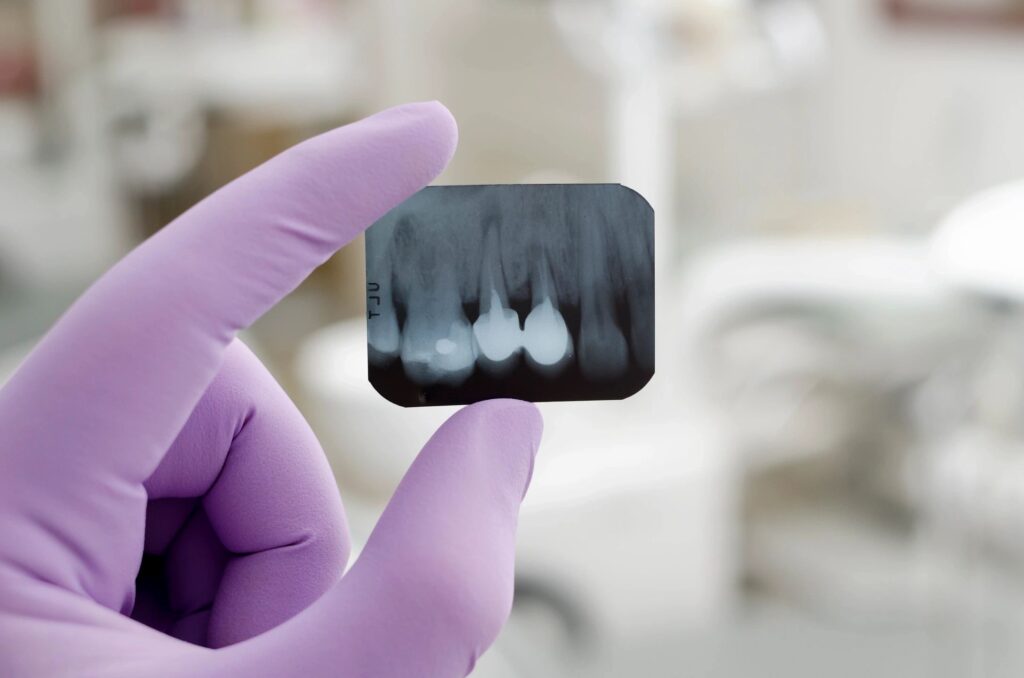Your Doctor May Prescribe These Preventative Steps for Bone Health:
Patients should talk openly to their doctor about their bone health. If a patient has been treated with an androgen deprivation therapy (ADT) or has been diagnosed with metastatic prostate cancer, they may want to ask for bone testing.
- Calcium supplements
- Vitamin D supplements
- Regular exercise and dieting
- Limiting smoking and alcohol consumption
TALK WITH YOUR DOCTOR ABOUT YOUR DENTAL HEALTH

Before you start taking the bone targeting therapies bisphosphonates or denosumab, it’s very important for you to keep your teeth and gums healthy. It is highly recommended to make sure to visit your dentist. If you need to have any major dental surgeries (such as implants or extractions), have them before starting these medications. Your mouth needs to be healed from any dental surgeries before you start taking these medications. This could take months, depending on the surgery.
Osteonecrosis of the Jaw (ONJ) is a rare, but serious side effect of bisphosphonates and denosumab. You may be prescribed these medications if you have:
- Cancer that has spread to the bone.
- Osteoporosis or osteopenia. This is a weakening of the bones that can lead to fractures (broken bones).
Bisphosphonates can be given orally (by mouth) or intravenously (through a vein). Some examples of bisphosphonates are:
- Zoledronic acid (known as Zometa® for cancer treatment and as Reclast® for osteoporosis treatment)
- Pamidronate disodium (Aredia®)
- Alendronate (Fosamax®)
- Risedronate sodium (Actonel®)
- Ibandronate sodium (Boniva®)
Denosumab is given by injection (shot). Examples of denosumab include:
- Xgeva® for cancer treatment
- Prolia® for osteoporosis treatment
Both bisphosphonates and denosumab are given in higher doses and for a longer period of time to people with cancer than to people with osteoporosis. Symptoms of ONJ can range from very mild to severe. ONJ looks like an area of exposed bone in your mouth. It can cause tooth or jaw pain and swelling in your jaw. Severe symptoms include infection in your jaw bone.
You can get ONJ after some dental surgeries, such as getting teeth extracted (removed) or implanted. If this happens, it may take a long time for you to heal after dental surgery or you may not heal at all.
Mild cases of ONJ can be treated with a mouth wash. More severe cases can be treated with antibiotics, topical gels (gels you put directly on your gums), and dental procedures. Studies show that about 1% to 2% of people (1 to 2 people out of 100) who take these medications for cancer involving the bones will develop ONJ. The risk is much lower for people who are taking them to treat osteoporosis. Studies show that less than 1% of people, (about 1 out of 10,000 to 1 out of 100,000) who are taking the medications for osteoporosis will develop ONJ.
